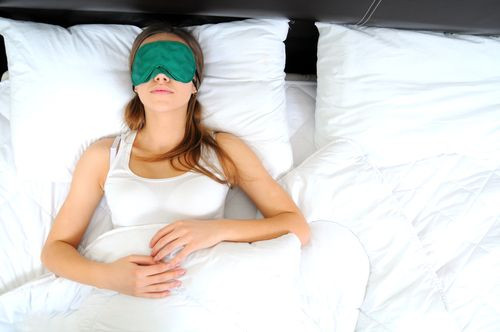Sleeping 7 to 8 Hours A Night Reduces Work Absences, Makes For Overall Better Day

A 2013 Gallup poll revealed 40 percent of Americans don’t get the recommended seven to eight hours of sleep per night. If they did, they’d have fewer work absences, according to a new study published in the journal Sleep.
"Optimal sleep duration should be promoted as very long and very short sleep indicate health problems and subsequent sickness absence," Dr. Tea Lallukka, lead study author and specialized researcher at the Finnish Institute of Occupational Health, said in a press release.
Lallukka and her team anaylzed the results of a prior survey of nearly 4,000 Finnish men and women ages 30 to 64 who had been working during any time the previous year. Each participant had been asked a series of questions related to both their sleep and health habits, and data provided by the Social Insurance Institution of Finland helped show work absences that lasted more than 10 days.
Researchers found men and women who slept five hours or less (or more than 10 hours) were absent from work up to nine days more than those who got their seven to eight hours. Additionally, researchers found insomnia-related symptoms, feeling overly tired, and using sleeping pills significantly increased work absences, too. When researchers adjusted some of the data, they found direct costs of work absences could decrease by 28 percent if optimal sleep was, in fact, promoted.
"Insufficient sleep contributes to the risk for several of today's public health epidemics, including cardiovascular disease, diabetes, and obesity,” Dr. Timothy Morgenthaler, president of the American Academy of Sleep Medicine (AASM) and national spokesperson for the Healthy Sleep Project, said in the study’s press release. “Getting at least seven hours of nightly sleep is a key to overall health, which translates to less sick time away from work.”
The Healthy Sleep Project is a national initiative meant to encourage healthier sleep habits. This past May, AASM joined forces with the Centers for Disease Control and Prevention and Sleep Research Society to launch the “Sleep Well, Be Well” campaign to reiterate sleep is one of the three pillars of a healthy lifestyle.
It’s true: Inadequate sleep has been found to negatively impact brain size, student grades, waistlines, mental health — and those are just the results of studies released in the last month. The AASM advocates sleep is not an option. Your body and health simply can’t thrive without it.
Per the AASM project and campaign, adults should aim for seven to nine hours of sleep a night; avoid drinking beer, caffeine, and smoking a cigarette before bed; maintain a consistent sleep schedule; and seek help when decent shut-eye just won’t happen.
Sleep more, work more (and vastly improve quality of life), if only because it’ll mean you can take more vacations. But really, get some sleep.
For more tips on how to do that, check out this awesome video from the guys at ASAP Science.
Source: Lallukka T, Kaikkonen R, Härkänen T, Kronholm E, Partonen T et al. Sleep and Sickness Absence: A Nationally Representative Register-Based Follow-Up Study. Sleep. 2014.
Published by Medicaldaily.com



























